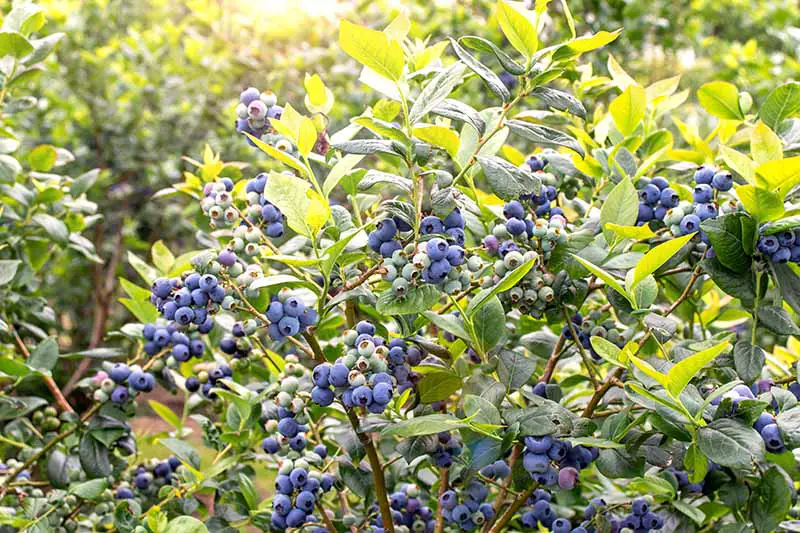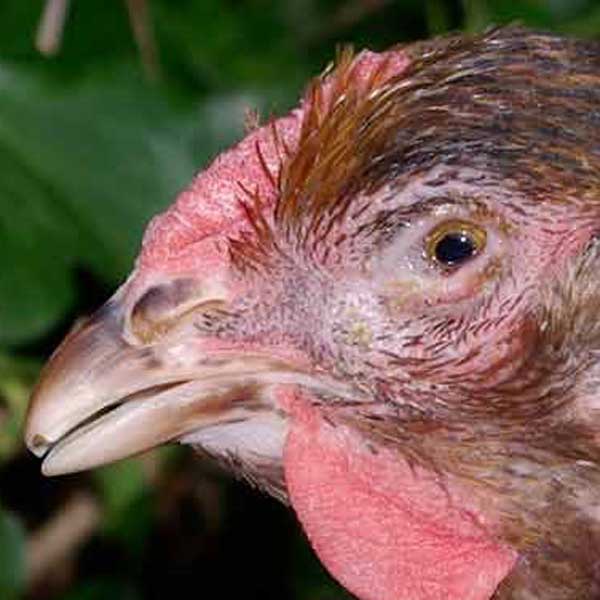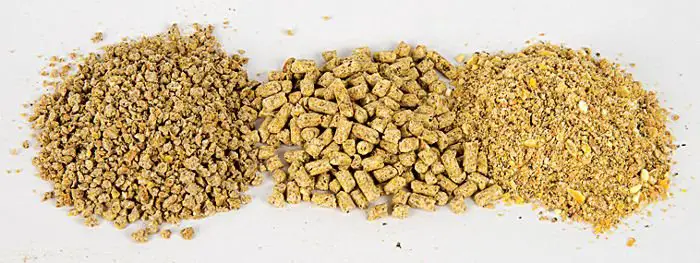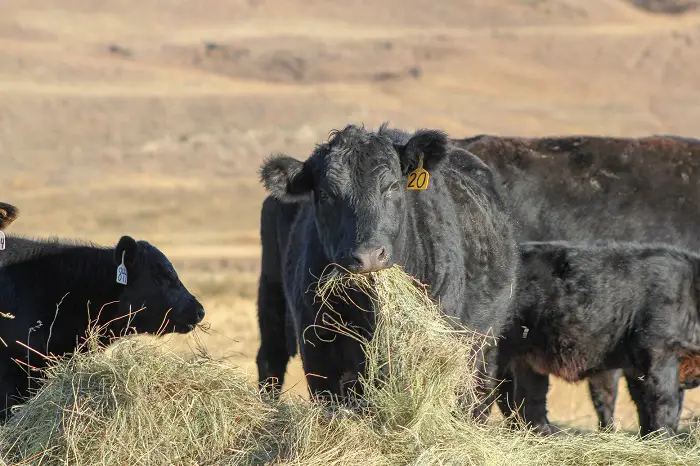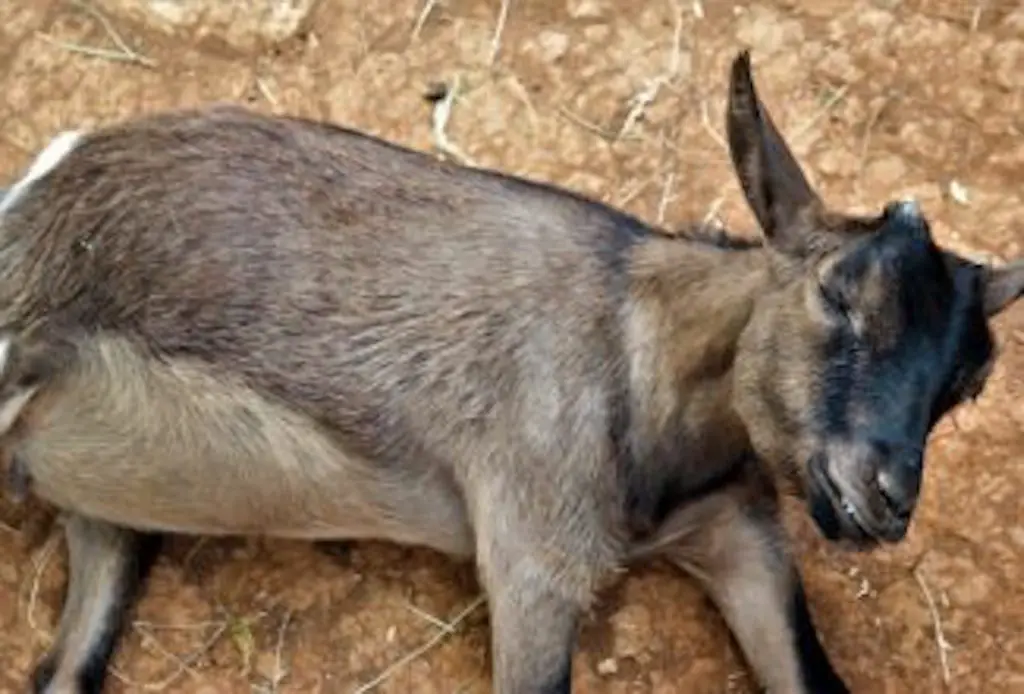Blueberries are a very common fruit native to North America that has found its way around the globe with a lot of touted health benefits. The blueberry plant is a very hardy and cold-resistant plant yielding pea-sized sweet berries. The blueberry plant has a higher protein level than grass which makes up the bulk of cow feed, while the berries are carbohydrate-rich. Cows can eat both the plant and the berries themselves and can be used to graze around the plants for weed control.
Contents
Ruminant Digestion
Cows are ruminants, hence they require a high-fiber diet, which is digested with the aid of microbes present in their rumen. The rumen is a four-chamber fermentation vat, where feed is broken down by the rumen microbes by fermentation. Rumen fermentation requires the following nutrients in constant supply for it to function properly energy, protein, and fiber. Traditional sources of these are grass and legumes from grazing, grain, and oil seed by-products supplemented to the cows by farmers. However, cows are known for being able to balance their own diets while grazing by grazing only on beneficial plants and avoiding any plants that are of little or no nutritional value unless in times of feed shortages.
Nutritional Value of Blueberries
Blueberry fruits grow on bushes, classified as low or high bushes, that are grown in rows for easy movement among the plants for harvesting and maintenance. Cows can eat both the blueberry fruits, and plants getting energy, and fiber respectively. Below we will look at the nutritional value of the different parts of the blueberry.
Blueberry Plants
Cows are not really browsers but will browse to fulfill mainly their protein requirement as most browse species are high in protein like acacia and other legume species. Blueberry plants have an average protein of 12% which is better than that of grass, hence cows can browse on these improving their protein intake. Where blueberries grow wild or are grown commercially this can be of benefit to both the cows and the blueberry bushes as the cattle also fertilize the soil naturally, meaning the blueberries won’t need additional fertilization.
Blueberry Fruits
Blueberries are not very nutrient-dense fruits averaging 14% carbohydrate, and 0.7% protein, the rest being mostly just water and fiber. The fruits contain a number of polyphenols, mostly anthocyanins which have reported anti-inflammatory and antioxidant health benefits. In terms of micronutrients like vitamins and minerals, blueberries are also very low with very negligible amounts. Given this profile, the fruits can only be fed as supplements and not the bulk of the diet to avoid nutritional deficiencies.
There are no known toxins both in the berries and plant so both options are perfectly safe for cows if fed in moderation.
Benefits of Feeding Blueberries to Cows
Blueberries grow in poor acidic soils and where grown commercially farmers need to continually check the soil acidity and avoid additional fertilization as the bush can get nitrogen burned easily. Running cows in pastures with wild or commercially grown bushes helps improve the profitability of the farming enterprise as a whole. The cattle will browse on the protein-rich bushes, eat weeds and fertilize the land naturally leading to optimum growth of the blueberries.
Challenges of Feeding Blueberries to Cows
Blueberries in most regions outside of North America and Europe are done on a commercial basis and there are no wild stands. It might not be as beneficial to have cows moving in and among the bushes as they can tremble the bushes or consume fruits destined for the market. Unless fed as a snack to a few animals I do not see a huge potential for them to be a profitable alternative to traditional forage sources. The thin skin and high sugar content of blueberries can also be a problem as the blueberries can be rapidly digested by the cows leading to digestive upsets.
Which Classes of Cows Can Eat Blueberries?
All age groups and classes of cattle can eat blueberries, however, they are ideal for supplementing cows that are still growing and performance is not of the utmost importance, focusing mostly on maintenance. Dairy cows in production and feedlot cattle will benefit very little from blueberries and should be fed carefully formulated feeds to meet their performance targets. Blueberries provide very little in terms of nutrients like energy and protein hence large quantities have to be fed to get any meaningful results which might not be profitable or cause digestive issues.
What Fruits Can Cows Eat?
Cows can eat a lot of other fruits while grazing and are fed intentionally by farmers from any excesses that they might have on farms. Some of the fruits that cows can eat are among and not limited to the following:
- Berries: blackberries, strawberries, grapes
- Pit fruit: Peaches, apricots, nectarines
- Tropical fruits: Mangoes, papaya, pineapples, bananas
- Melons: watermelons, cantaloupe
- Citrus fruits: Oranges, grapefruits
Whole fruits, parts, and/or by-products from the processing of these fruits can be used profitably to feed cows.
Can Cows Eat Bread?
Cows can eat bread rejects as bread is rich in carbohydrates that provide energy to cows. Spoiled or rejected bread can be incorporated into complete, and balanced diets as a raw material to substitute traditional energy sources like grains. Bread lacks fiber and is easily digestible so its inclusion should be limited in cow feed to avoid acidosis and bloat which can be lethal conditions. Spoiled bread can also be a mycotoxin risk, although cows have a high tolerance to mycotoxins they can find themselves in milk for human consumption.
Conclusion
In conclusion, cows can eat blueberries as supplements as part of a complete roughage-based diet. Blueberries although they have valuable antioxidant and anti-inflammatory properties should be fed in moderation as they are expensive and can lead to digestive upsets if fed in excess. Cows can also browse on the blueberry plant which is richer in protein than grass assisting in coupled fermentation in the rumen. Blueberries and other fruits and their by-products where they are available can make good supplements for cow feed depending on the cost of feeding such.
